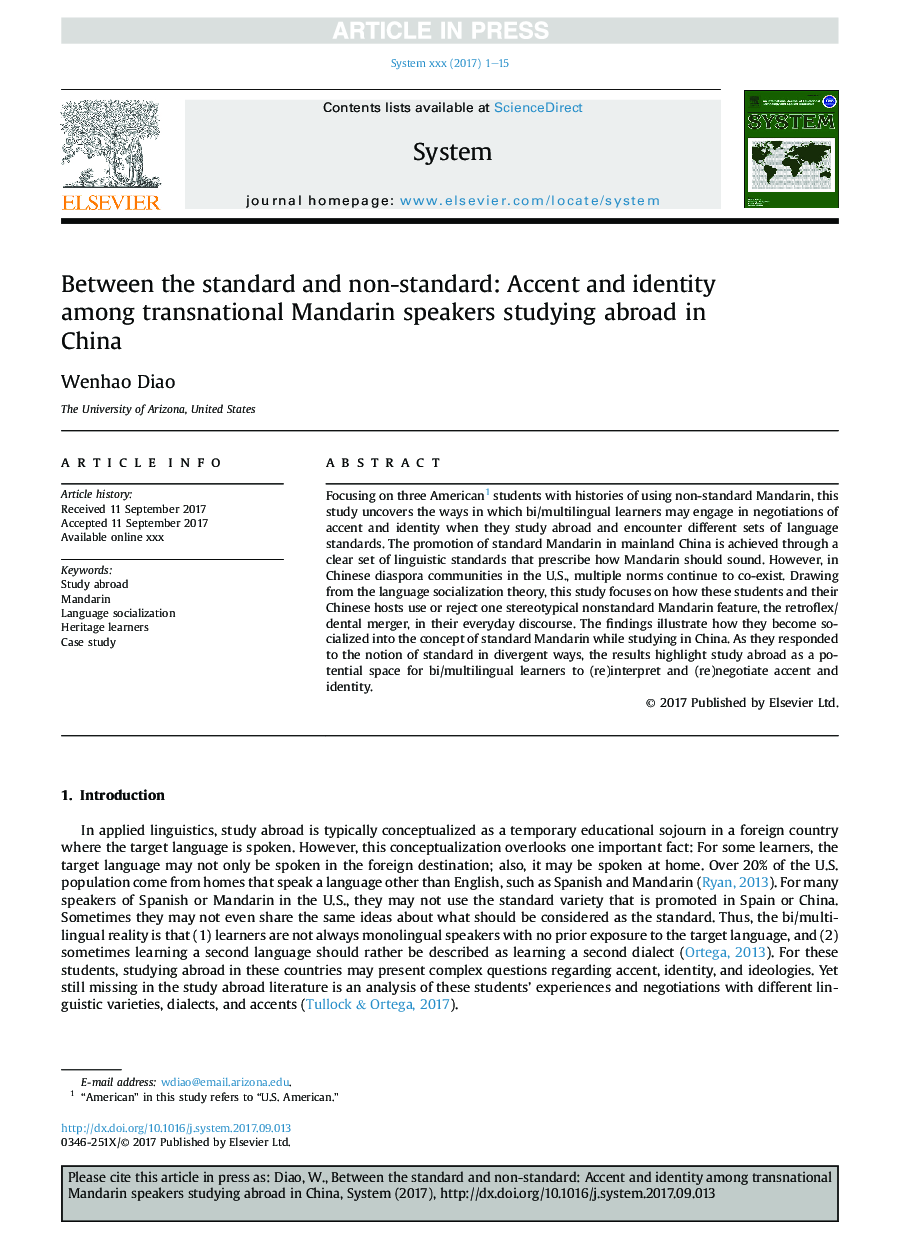| Article ID | Journal | Published Year | Pages | File Type |
|---|---|---|---|---|
| 6849492 | System | 2017 | 15 Pages |
Abstract
Focusing on three American1 students with histories of using non-standard Mandarin, this study uncovers the ways in which bi/multilingual learners may engage in negotiations of accent and identity when they study abroad and encounter different sets of language standards. The promotion of standard Mandarin in mainland China is achieved through a clear set of linguistic standards that prescribe how Mandarin should sound. However, in Chinese diaspora communities in the U.S., multiple norms continue to co-exist. Drawing from the language socialization theory, this study focuses on how these students and their Chinese hosts use or reject one stereotypical nonstandard Mandarin feature, the retroflex/dental merger, in their everyday discourse. The findings illustrate how they become socialized into the concept of standard Mandarin while studying in China. As they responded to the notion of standard in divergent ways, the results highlight study abroad as a potential space for bi/multilingual learners to (re)interpret and (re)negotiate accent and identity.
Related Topics
Social Sciences and Humanities
Arts and Humanities
Language and Linguistics
Authors
Wenhao Diao,
